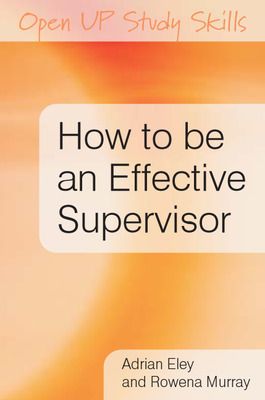How to be an Effective Supervisor: Best Practice in Research Student Supervision
Receive via shipping:
- Colour, print bound version of the complete text
Preface
Acknowledgements
Introduction
Institutional environment
Selection and admission of students
Supervision arrangements
Monitoring and review arrangements
Induction and training in research and generic skills
Feedback mechanisms
Good examination practice
Complaints and appeals procedures
Features of other research degrees
Future directions and conclusions
Appendix 1: Training and Accreditation Programme for Postgraduate Supervisors (TAPPS) as a National Accreditation Scheme/Bologna Process/EU Charter
Appendix 2: Case studies for supervisor development programmes
Appendix 3: Precepts and explanations
References
Index
Examples of problems and suggested solutions, reflecting both supervisor and student perspectives, guide supervisors through issues they may face. There are also recommendations for further reading. Key areas the book explores include:
- Selection and admission of students
- Supervision arrangements
- Training in research and generic skills
- Monitoring and review arrangements
- Feedback
- Examination practice
- Complaints and appeals procedures

